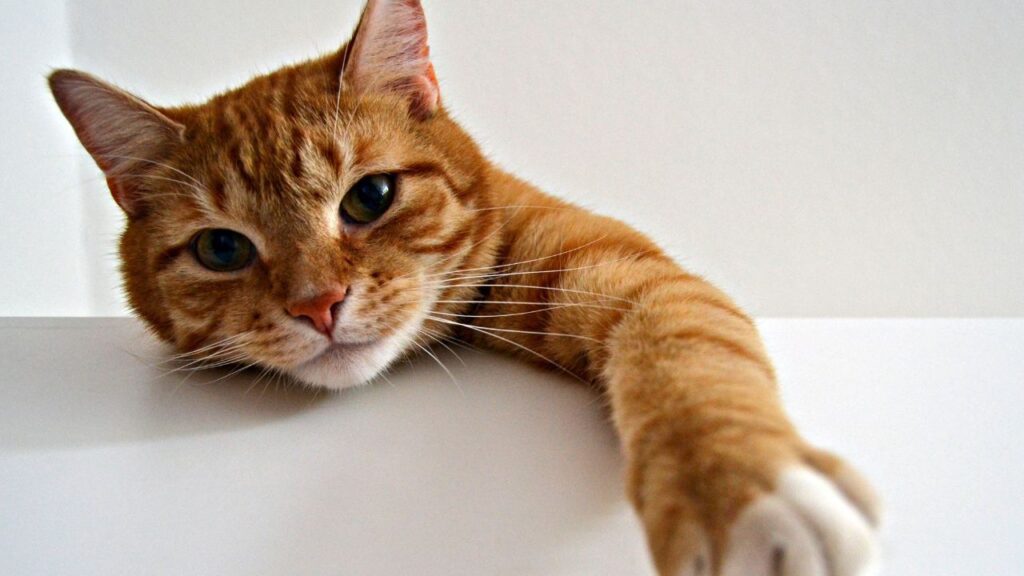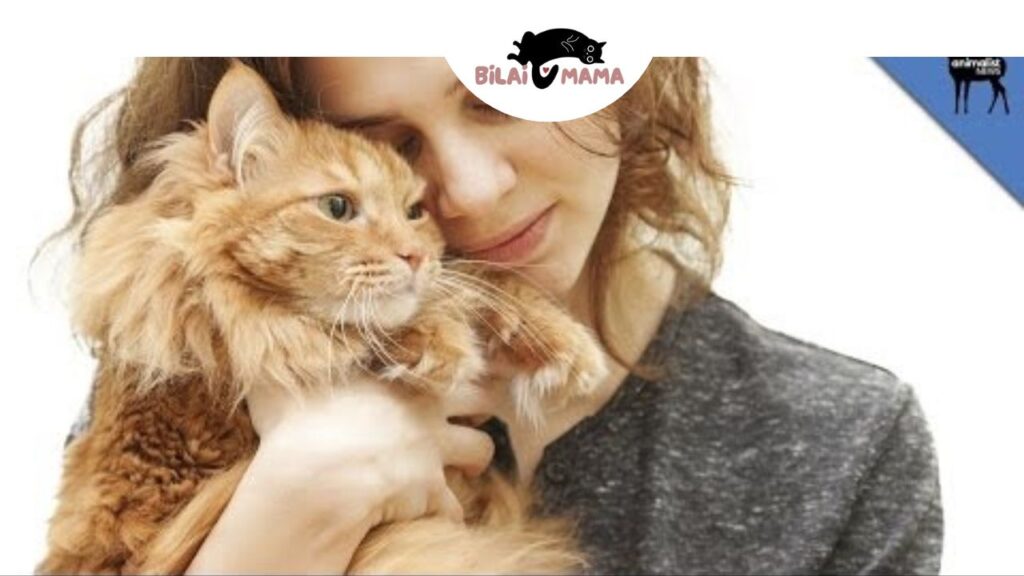Have you ever sat on the floor, tears streaming down your face, seeking comfort from your furry companion, only to be met with disinterest or indifference? If you’ve ever asked yourself, “Why doesn’t my cat care that I’m crying?” you’re not alone. Many cat owners experience the same confusion. Cats are known for their aloof and independent nature, but can they truly be uncaring? Or is there something deeper going on that explains their behavior?
In this article, we’ll dive into the science of feline emotions, their social behaviors, and why your cat might not respond the way you expect when you’re feeling down. Whether you’re a lifelong cat lover or a new pet parent, understanding your cat’s emotional world can help you better navigate these moments of vulnerability.
The Emotional World of Cats
Unlike dogs, who have been domesticated for thousands of years to work alongside humans, cats have retained much of their wild instincts. This might be one of the reasons why they respond to human emotions in such a unique way. But does that mean they don’t care when we cry?
Why Cats Don’t Comfort Like Dogs Do
Humans are complex emotional creatures, and when we cry, we often expect our pets to offer comfort. However, cats aren’t wired to comfort the way dogs are. While dogs have been bred for thousands of years to work closely with humans—herding, guarding, and even providing emotional support—cats were domesticated more for their ability to hunt and keep homes free of pests. This difference in their roles is crucial when understanding their behavior.
- Dogs are social pack animals. They seek to please their owners and have evolved to be responsive to human emotional cues.
- Cats are solitary hunters. They evolved to be independent, and their social structure is less reliant on emotional bonds with humans.
Therefore, when you cry, your cat may not instinctively know how to comfort you. In fact, they might simply observe you and go about their business, as if nothing is amiss.

What Cats Do When We Cry
If you’ve ever noticed your cat behaving normally while you’re sobbing, it might feel like they don’t care. However, this is not always the case. Here’s a look at some common behaviors cats may exhibit when you’re upset:
- Curiosity
Cats are curious creatures by nature. If you’re crying, your cat may come over to investigate, wondering what’s going on. But don’t mistake their curiosity for concern—they may just be observing, trying to figure out what the strange noises or emotions are about. - Staying Away
Some cats may avoid you when you’re upset. This is often their instinct to protect themselves from what they perceive as a potential threat. Loud noises or unfamiliar emotional states can cause stress for cats, and they may withdraw as a way to cope. - Offering Physical Affection
A select few cats will respond to crying by rubbing against you, purring, or sitting near you. While this may seem like comfort, it’s more likely that your cat is offering you companionship because they recognize that something is different. Their presence might be their way of saying “I’m here,” but it doesn’t necessarily indicate that they understand your emotions. - Ignoring You Completely
This is the most puzzling behavior for many owners. Cats are not always emotionally expressive, and when you’re upset, they may simply not know how to respond. This indifference can be frustrating, but it doesn’t mean your cat doesn’t care—it just means they don’t share the same emotional attachment to crying that humans do.
The Science Behind Cat Emotions
While it’s true that cats don’t always respond to emotions in the same way as dogs or humans, it’s a common misconception that cats don’t have emotions. They experience a range of feelings, including happiness, fear, anger, and anxiety. However, cats don’t express these feelings as openly as other animals do. Instead of responding to crying with comforting behaviors, a cat might react by maintaining their own space or simply observing.
Cats’ Emotional Responses vs. Human Responses
Humans often seek social support during emotional distress, but for cats, their instinct may lean toward solitude. Here are some key points about how cats process emotions:
- Self-Soothing: When a cat feels threatened or stressed, their instinct may be to retreat and self-soothe. In the wild, solitary cats need to handle their own emotions, which is why they might not feel the need to comfort you when you’re upset.
- Limited Empathy: Cats are capable of empathy to a degree, but their empathetic response is different from that of dogs. Cats don’t naturally sense human tears as distress signals—they’re more likely to focus on the physical cues (like the sound of crying) and assess whether it affects them directly.
Are Some Cats More Empathetic Than Others?
While all cats have the capacity for emotions, certain personalities are more likely to engage with their human companions emotionally. Cats, like people, have individual personalities, and some might be more in tune with their owners’ feelings than others. If you’ve ever had a cat that cuddles with you during sad moments or seems to know when you’re unwell, you may have a particularly empathetic cat.

Factors That Influence a Cat’s Empathy
- Early Socialization: Cats raised in a more social environment, particularly those that were exposed to a variety of human interactions during kittenhood, are more likely to show emotional awareness toward their owners.
- Bond with the Owner: Cats who have a strong bond with their owners may respond more to emotional cues, though this varies from cat to cat.
- Individual Temperament: Some cats are naturally more affectionate and attentive, while others prefer a more independent lifestyle.
Can Cats Be Taught to Comfort?
While it may be unrealistic to expect a cat to comfort you the way a dog might, there are ways to strengthen the emotional bond with your cat. Over time, they may learn to recognize certain emotional cues, and with patience, you might see more comforting behaviors.
- Consistency: Cats respond well to routines. If you consistently show your cat love and care, they might begin to recognize when you’re upset and come over for companionship.
- Positive Reinforcement: Gently rewarding your cat with treats or affection when they do show concern (like sitting on your lap during tough moments) can help reinforce comforting behavior.
How to Cope When Your Cat Doesn’t Respond to Crying
It’s important to remember that just because your cat doesn’t respond to your crying the way you’d expect doesn’t mean they don’t love you. Cats express their emotions differently. Here are a few tips on coping with this situation:
- Understand Your Cat’s Behavior: Acknowledge that cats are not naturally inclined to comfort in the same way humans or dogs do. Their aloofness is often a reflection of their independent nature, not a lack of care.
- Seek Other Sources of Comfort: If you’re feeling emotional, consider reaching out to a friend or loved one. Cats can provide great companionship, but sometimes human connection is necessary for emotional healing.
- Engage Your Cat in Play: Cats often show affection through play or physical closeness. Try engaging your cat in interactive play to strengthen your bond.
FAQs
Why doesn’t my cat respond to my crying? Cats have a different way of processing emotions and might not recognize crying as a sign of distress. They may be curious, but they don’t instinctively know how to comfort you.
Do cats feel empathy for humans? Cats are capable of empathy to some degree, but their emotional responses are less expressive than those of dogs. They may sense your sadness, but they won’t always show it in comforting ways.
Why do some cats ignore their owners when they cry? This behavior could be due to their natural instinct to stay away from what they perceive as a threat. Loud noises or strong emotional signals might cause stress for some cats.
Can I teach my cat to comfort me when I’m sad? You can build a stronger bond with your cat through positive reinforcement and consistent interaction. Over time, they may become more attuned to your emotions.
Why do some cats comfort their owners when they cry? Cats who have a strong emotional bond with their owners might show comforting behavior by sitting close, purring, or offering physical affection during times of distress.
Should I be worried if my cat doesn’t comfort me when I cry? Not at all. Cats have different emotional responses, and a lack of comforting behavior doesn’t mean your cat doesn’t love or care for you.
Conclusion
So, why doesn’t my cat care that I’m crying? The answer lies in understanding feline nature and behavior. Cats may not respond to crying in the way humans expect, but they still have complex emotional lives of their own. Whether it’s because they’re solitary hunters or just don’t understand human tears, their indifference isn’t a sign of a lack of affection. Instead, it’s a reflection of their unique emotional framework.
Next time you find yourself in tears, don’t be disheartened by your cat’s indifference. Instead, take comfort in knowing that they love you in their own way, even if it doesn’t always align with your emotional needs.

